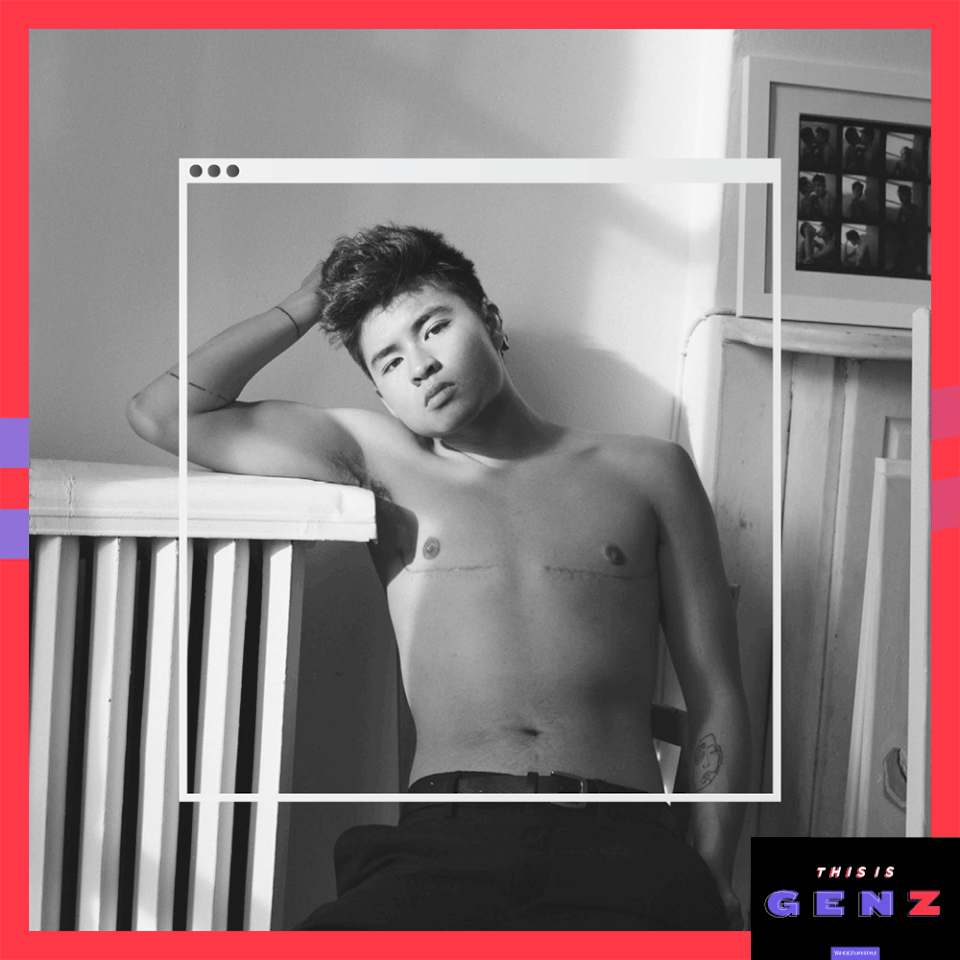Innovative, resilient, woke: Ready or not, Generation Z has arrived
Generation Z. The iGeneration. Post-millennials. The Founders. There are a handful of monikers intended to neatly define those born between roughly 1998 and 2015, but at this point “Generation Z” seems to be the one with the staying power. As this group of 61 million young Americans — which makes up 26 percent of the U.S. population — enters its formative years, who exactly is the future of this country and what are they all about? Asking Gen Z-ers to define themselves, they say they are “innovative,” “self-aware,” “resilient,” and “woke .” They are the children of Generation X and have been raised amid an America in tumult, finding themselves on the front lines of a divided nation. In a series of articles now on Yahoo Lifestyle, we get to know this rising generation and what makes its members so powerful, so opinionated, and so unique. This is Gen Z.
Generation Z vs. millennials
The closest generation to Gen Z is millennials, who were born between the early 1980s and mid-’90s. To compare the two means immediately noticing a few distinguishing factors. Millennials, the oft-called “Me, Me, Me Generation,” were raised in the American prosperity of the ‘90s and told young to follow their dreams — only to then have those dreams dashed by reality. Gen Z-ers have grown up during much more sobering times. This is the first post-9/11 generation; their childhood occurred in times of economic recession, terrorism, and a nationwide plague of school shootings. Whereas millennials are often faulted for their perceived entitlement and apathy, Gen Z-ers know that things need to change, and they carry the weight of that responsibility — a fact clearly evidenced by the Gen Z-organized March for Our Lives rallies for gun control, which brought more than a million people to Washington, D.C. As 10-year-old Mari Copeny, aka Little Miss Flint, tells Yahoo Lifestyle about why she took it upon herself to fight for clean drinking water in her community of Flint, Mich., “Nobody was listening to the grownups. I knew if I spoke loud enough, they would listen to me.”

Generation Z and diversity
By 2020, more than half of the kids in the U.S. will be members of a minority — making Generation Z the first for which diversity is the norm. Gen Z-ers are also the first to grow up during a time when same-sex marriage is not a hot-button political issue — it’s a constitutional right. It should come as no surprise then that their social leanings are progressive. Many of their favorite peer celebrities, like Rowan Blanchard and Amandla Stenberg, identify as queer, and only 48 percent of Gen Z-ers identify as heterosexual. As 19-year-old trans artist Chella Man tells Yahoo Lifestyle, “My identity is valid although most of it falls on a spectrum between standard categories.”

Generation Z and the Internet
The first generation of digital natives, Gen Z has a relationship with the internet that no generation before it has ever known. In a group for whose members the internet is as fundamental as books or television, and a phone in a pocket begins at increasingly younger ages, it is safe to say that their internet fluency is unlike any other generation. Gen Z-ers on average spend more than 10 hours a day online. And while generations above them tend to scorn this amount of internet usage, countless Gen Z-ers told Yahoo Lifestyle they wish adults took their use of phones and technology more seriously. March for Our Lives co-founder Jaclyn Corin tells Yahoo Lifestyle that her phone usage was directly related to her ability to start a national movement. “We’re educating ourselves. I know that every single piece of information that helps me through this journey comes from the internet.” Social media star Baby Ariel said something similar about her use of the internet to entertain: “We live in a new world where social and digital media are simply a new form of entertainment that are just as legitimate as ‘traditional’ entertainment.”

Generation Z and mental health
With near constant connectivity online comes an inevitable degree of isolation IRL. While Gen Z inhabits a highly global world, its young people are also fairly sequestered in their own devices. Generation Z was recently named “the loneliest generation,” with more than half of Gen Z-ers saying they feel lonely. They are also largely pessimistic about their prospects and anxious about the everyday. The positive here, though, is that Gen Z has eschewed much of the virtual perfectionism adopted by millennials and is making their online presence more politically focused, more mission-driven, and more aware.
Generation Z and economics
Considering all the above, it should come as little surprise that Gen Z-ers are highly entrepreneurial and somewhat reluctant to spend. According to a recent study, 70 percent of Gen Z teens are already self-employed — fitting given their access to the innovative landscape of the internet. They are also worried about going into debt, awake to the realities of economic calamity, and already saving for their retirement. They may be on the cusp of leading this nation’s economy, but their spending habits in many ways more closely align with the fiscally cautious Silent Generation (who grew up amid the turmoil of the Great Depression and World War II) than the starry-eyed millennials.

Generation Z and the future
Even if you knew nothing about Gen Z before reading this article, you likely were aware that this is a generation on a mission. From gun control advocacy to LGBTQ rights, this generation sees faults in the system and is here to change them. “The world needs stories that inspire compassion. I’ll use poetry to write them,” the nation’s 20-year-old Youth Poet Laureate Amanda Gorman tells Yahoo Lifestyle. “We are the generation that will save the world. We won’t just talk about it. We will put our ideas to action, and we won’t wait until we grow up to do it. We are ready to work now,” Little Miss Flint Mari Copeny says. Generation Z-ers are here — and they’re ready to change the world.


